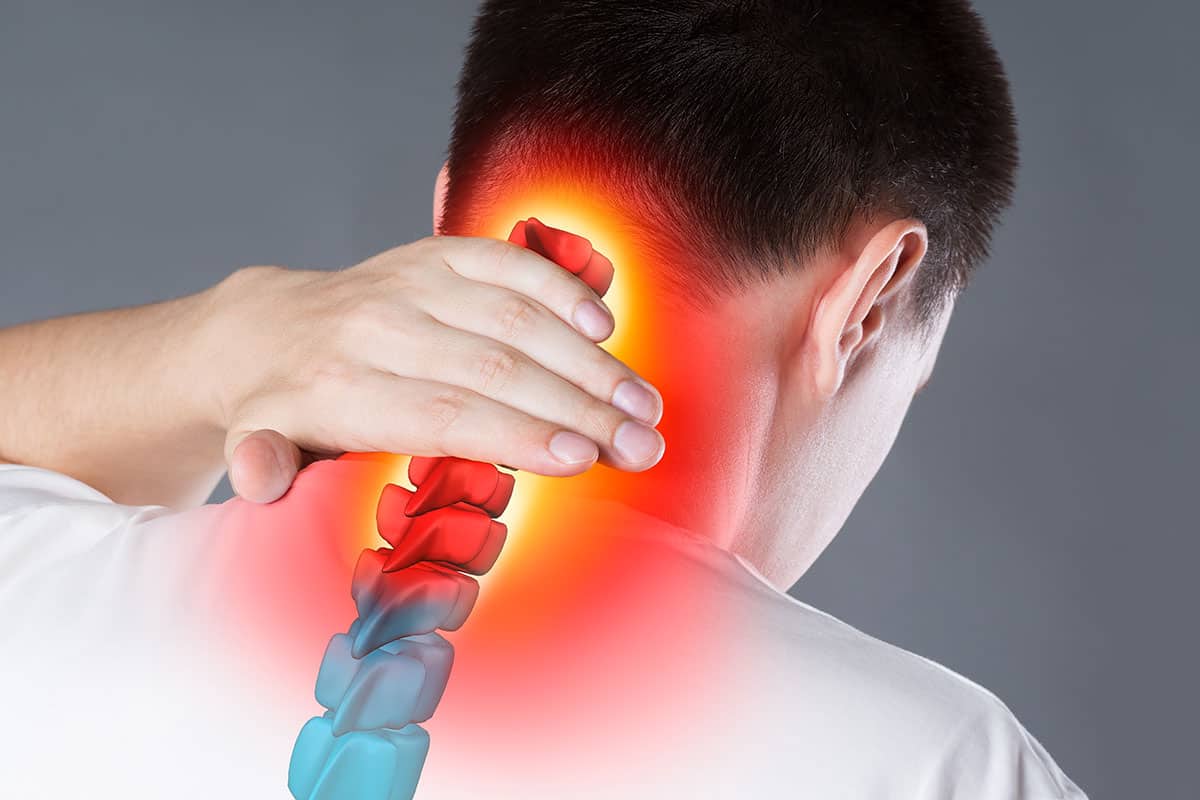Neck Pain
At Kennedy Health, we understand the debilitating effects of neck pain and offer comprehensive solutions to alleviate your discomfort. Our expert medical professionals specialize in diagnosing and treating a wide range of neck pain conditions. Explore the causes, conditions, symptoms, and treatment options available to help you find relief and restore your neck’s health.
Causes of Neck Pain
Muscle Strains and Sprains
Overuse, poor posture, or sudden movements can strain or sprain the muscles and ligaments in the neck, leading to acute pain and discomfort.
Whiplash
Sudden back-and-forth movements, often experienced during car accidents, can cause whiplash, resulting in neck pain, stiffness, and reduced mobility.
Cervical Disc Herniation
When the intervertebral discs in the cervical spine protrude or rupture, they can compress nearby nerves, causing neck pain, radiating pain, numbness, or tingling sensations.
Cervical Spondylosis
This age-related condition involves the degeneration of the cervical spine, leading to the formation of bone spurs and the narrowing of the spinal canal, resulting in chronic neck pain and reduced mobility.
Cervical Stenosis
Narrowing of the spinal canal in the neck region can put pressure on the spinal cord and nerves, causing neck pain, weakness, and numbness.

Types of Diagnoses and Conditions
Muscle Strain or Sprain
Overexertion, poor posture, or sudden movements can lead to muscle strains or sprains in the neck, causing acute pain and limited mobility.
Cervical Radiculopathy
This condition occurs when a nerve root in the cervical spine becomes compressed or inflamed, resulting in radiating pain, tingling, or weakness in the neck, shoulder, arm, or hand.
Cervical Disc Herniation
When the cervical discs protrude or rupture, they can compress spinal nerves, leading to pain, numbness, and weakness in the neck, shoulders, arms, or hands.
Cervical Spondylosis
Age-related wear and tear of the cervical spine can lead to the development of bone spurs, disk degeneration, and the narrowing of the spinal canal, causing chronic neck pain and stiffness.
Symptoms Associated with Neck Pain
Pain and Stiffness
Acute or chronic pain in the neck region, which may radiate to the shoulders, upper back, or arms.
Limited Range of Motion
Difficulty moving the neck or experiencing reduced flexibility and mobility.
Headaches
Neck pain can often be accompanied by tension headaches or migraines.
Muscle Spasms
Painful muscle contractions in the neck area.
Numbness or Tingling
Sensations of numbness, tingling, or weakness that may radiate into the shoulders, arms, or hands.
Treatment Options
Medication Management
Nonsteroidal anti-inflammatory drugs (NSAIDs), muscle relaxants, or pain medications may be prescribed to manage pain and reduce inflammation.
Physical Therapy
Our experienced physical therapists design personalized exercise programs to improve neck strength, flexibility, and posture, providing relief and preventing further issues.
Chiropractic Care
Chiropractic adjustments and spinal manipulations can help realign the spine, relieve nerve pressure, and reduce neck pain.
Joint Injections
Intra-articular injections, such as corticosteroids or hyaluronic acid, may be recommended to alleviate pain, reduce inflammation, and provide temporary relief.
Heat and Cold Therapy
Applying heat or cold packs to the neck can help alleviate pain, reduce inflammation, and promote relaxation.
Transcutaneous Electrical Nerve Stimulation (TENS)
TENS therapy involves the use of low-voltage electrical currents to relieve pain by stimulating nerves and promoting the release of endorphins.
Posture Correction
Our experts provide guidance on maintaining proper posture and ergonomic adjustments to prevent further strain on the neck.
Injection Therapies
In some cases, targeted injections, such as corticosteroid injections or nerve blocks, may be recommended to provide localized pain relief and reduce inflammation.
Surgical Intervention
In rare cases where conservative treatments are ineffective, surgical options may be considered for specific neck conditions.

Don’t let neck pain limit your daily activities and hinder your quality of life. Contact Kennedy Health today to schedule a consultation and take the first step toward finding effective neck pain relief through our specialized services. Trust our expertise and experience to help you regain a pain-free and mobile neck.

